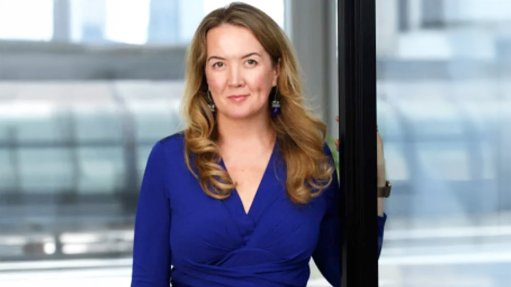Will the SDGs help us rewire the economy?
The Sustainable Development Goals (SDGs) are the new mantra, and everybody is trying to figure out the best way to leverage them; the question is whether to follow the same old path or to beat a new one.
If the underlying premises of an economic system are the same, what can SDGs really solve?
Robert and Edward Skidelsky, in their book, How Much is Enough – Money and the Good Life, make this observation about John Maynard Keynes: “Keynes was deeply ambivalent about capitalist civilisation. It was a civilisation which unleashed bad motives for the sake of good results. Morality had to be put in cold storage till abundance was achieved, for abundance would make possible a good life for all.”
Keynes knew we were making a Faustian bargain with capitalism in the hope that, with abundance, we would opt for a more just and civilised economy. Keynes was perhaps pragmatic in recognising that simply turning a system on its head would unleash chaos and that adjusting a society’s moral compass might tame its excesses.
The Skidelskys’ book is on what constitutes a good life and draws on philosophical discussions going back to the first Stoics and Aristotle, as they see these age-old debates as unresolved questions that have continued to nag us to this today.
Whereas economic objectives used to be set around questions of ethics, these have now been displaced by questions of scarcity and efficiency.
Their book is also a departure from Keynes’s essay, ‘The economic possibilities of our grandchildren’. In the essay, Keynes makes a wager: he believes that growth spurred on by technology will lead to abundance and higher incomes. The consequence, he assumes, is that people will spend more time engaging in leisure pursuits, thinking and the betterment of humanity. But, today, people spend a lot of time working to be at the top of the pecking order, while those who cannot make ends meet find that one job does not carry them far enough in acquiring the essentials of life.
The Skidelskys’ book highlights how Keynes’s original idea is no longer tenable, given inequality, the problem of artificial scarcity (caused by insatiable consumption) and the fact that the time we spend at work has generally not decreased, but increased, as we seek to earn more money.
In essence, the Skidelskys argue that the focus of economies should not be on endless growth but on the equal distribution of primary goods (to use the Rawlsian term), where humans can establish for themselves more holistic lifestyle expectations and participate more actively in shaping public life and objectives when they can have more time for political engagement.
What a good life is is an open question but, as Richard Easterlin’s pioneering work shows, it is to be found neither in endless growth nor the size of a country’s gross domestic product (GDP). According to what is now known as the Easterlin paradox, GDP growth and happiness are not one and the same thing.
In a status-driven world, happiness is often equated to material abundance and the accumulation of oligarchic goods and exclusive leisure opportunities. Oligarchic goods, which have scarcity value because they are expensive to access, drive the pursuit of income only because of vanity and the fact that those who are able to claim these goods are proud of the fact that they are at the top of our class-ordered society. In a sense, oligarchic materialism, even for those who have not had their wants quenched, becomes the standard for a good life and the illusion of happiness.
These pursuits beyond basic needs drive home the Skidelkys’ conundrum of a double sin, where, on the one hand, we must produce abundance for necessity and so suspend some of our moral objections to it, while, on the other, capitalism is a machine that is in need of growth, with the next stage, beyond basic needs, stirring the irrational passions incited by status envy or anxiety.
It is in the light of this debate among economists that one needs to consider the full suite of SDG targets in a holistic manner, given the way economic sectors simply choose those SDGs that are most relevant only to themselves. The SDGs could just be dull instruments where mundane data collected by governments and business are simply indicators of progress with respect to a ‘ritual’ and nothing more. In this manner of doing things, it merely becomes a reporting obligation – like all sustainability reports – without meaning or moral purpose.
Alternatively, the SDGs can be useful in rewiring our economic paradigm, where they will be used to tackle the two sins of capitalism, that is, achieving the goals of abundance to reduce the demand for basic wants (albeit with stronger sustainability dimensions than may be the case before) and curtailing our insatiable wants. Without some moral compass dictating how we go about achieving the SDGs, we may as well continue to wreak damage on nature and also incentivise the psychotic predisposition of the economy.
We all agree that the economy is not solving the two challenges we have: inequality and environmental externalities. These are the double sins of modern-day capitalism that Keynes alluded to and have been taken up by his followers, such as the Skidelskys: our Faustian bargain of living with bad motives to create the good. Yet, what we have is bad motives but no common good in the fullest sense. Are the SDGs a way to relook at this Faustian bargain and rewire our economies towards a morally more acceptable path?
Article Enquiry
Email Article
Save Article
Feedback
To advertise email advertising@creamermedia.co.za or click here
Announcements
What's On
Subscribe to improve your user experience...
Option 1 (equivalent of R125 a month):
Receive a weekly copy of Creamer Media's Engineering News & Mining Weekly magazine
(print copy for those in South Africa and e-magazine for those outside of South Africa)
Receive daily email newsletters
Access to full search results
Access archive of magazine back copies
Access to Projects in Progress
Access to ONE Research Report of your choice in PDF format
Option 2 (equivalent of R375 a month):
All benefits from Option 1
PLUS
Access to Creamer Media's Research Channel Africa for ALL Research Reports, in PDF format, on various industrial and mining sectors
including Electricity; Water; Energy Transition; Hydrogen; Roads, Rail and Ports; Coal; Gold; Platinum; Battery Metals; etc.
Already a subscriber?
Forgotten your password?
Receive weekly copy of Creamer Media's Engineering News & Mining Weekly magazine (print copy for those in South Africa and e-magazine for those outside of South Africa)
➕
Recieve daily email newsletters
➕
Access to full search results
➕
Access archive of magazine back copies
➕
Access to Projects in Progress
➕
Access to ONE Research Report of your choice in PDF format
RESEARCH CHANNEL AFRICA
R4500 (equivalent of R375 a month)
SUBSCRIBEAll benefits from Option 1
➕
Access to Creamer Media's Research Channel Africa for ALL Research Reports on various industrial and mining sectors, in PDF format, including on:
Electricity
➕
Water
➕
Energy Transition
➕
Hydrogen
➕
Roads, Rail and Ports
➕
Coal
➕
Gold
➕
Platinum
➕
Battery Metals
➕
etc.
Receive all benefits from Option 1 or Option 2 delivered to numerous people at your company
➕
Multiple User names and Passwords for simultaneous log-ins
➕
Intranet integration access to all in your organisation

















